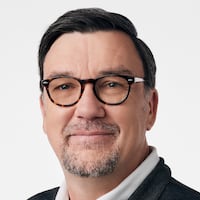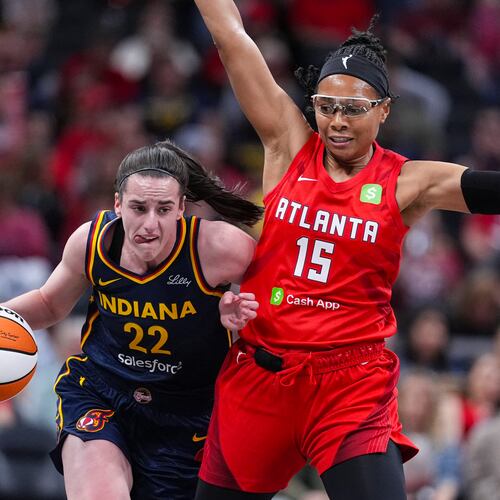Continuing with part 2 of the question-and-answer with Atlanta United President Darren Eales and academy director Richard Money on the processes that led to the first players in the academy.
Atlanta United will begin play in 2017. Its headquarters, where the first team and academy will train, are under construction in Marietta. The first team will play in Mercedes-Benz Stadium in Atlanta.
Q: We talked about that day at LakePoint, the phrase you used was, “the dream isn’t dead” for players that weren’t selected. I assume you will have a database or pool of those players should some of these not work out for whatever reason.
DE: Absolutely. The development of players, different players develop at different rates.
We would be idiots if we thought in that short period of time that we did the tryouts that we got everybody right at that time.
Some players at the under-12s aren’t going to kick on for whatever reason. There will be other lads at the under-12 level who will get stronger as the years go on. We’ve always got to be looking and assessing.
The dream is never dead.
There are some players that, for whatever reason, won’t go through out system but will go to college and be late bloomers.
There will always be on that you’ll miss. You’ll never find every player.
You just want to try and give everyone the best chance you can.
RM: Every soccer club around the world has made mistakes and let people leave and they go and make it somewhere else.
That’s just the nature of the beast.
I think the big thing for me is that, as we go forward, Darren has already alluded to the fact that there are a lot of youth organizations in this city that have done a fantastic job for a number of years. The tryouts are a testimony to that.
Concorde being the other D.A. club is one, but there are others and they know who they are. I can’t go through the whole list.
We are taking a number of players from U.F.A. and G.S.A and K.S.A. and S.S.A. They’ve all been really responsive.
As we go forward, we want to build those relationships even stronger so that in the future that if we identify a player that we think should be on our roster, there’s a relationship that we can speak to the D.O.C. and ask “if the guy is ready? What do you think?”
If we can get those types of relationships going forward then it will help the process and everyone can feel a part of it.
I’ve never been someone who goes along the mindset that whoever gets developed is down to one person or another person. There’s always a whole host of people involved in the process.
I’ve already said to a number of the D.O.C.’s that where we are today has got nothing to do with Atlanta United. The only thing we’ve done is put on two tryouts and try to get people there. Where we are at right now is down to a whole host of people and the jobs that they’ve been doing.
We aren’t saying that we are any better than anybody else. We do have an incredible resource with the MLS behind us that we think we can take them to another level. We want as many people to be a part of that, not just players, but coach, as we possibly can.
DE: The other element is we've been talking pure talent, as we build out the academy program and the hallmark of what is an Atlanta United player, character is going to be a big part of that. That's something we haven't talked about but it will come out as we through the process, through the training week on week. Who's got the character to play on the first team? Who's got that drive, who's got that grit that certain factor that you can have all the talent in the world but if you've not got that determination….
Those aspects are what we will also find out.
Q: Did yall interview the kids, or was there not enough time?
RM: No time. To be honest, to Darren's point it would have been lovely to ring up every D.O. C. and say "We're thinking about this kid, what's he like?"
But there just wasn’t time.
We’re probably not there with the relationships with the clubs.
That’s what we’d like to do going forward.
Q: You’ve been here more than a year now. How exciting is this for you? You’ve got teams. There’s blood under those uniforms.
DE: It was wonderful when we had the under-12 teams play in the showcase. That was the first taste of it. This now is, where we've been able to go through a tryout system, assess them the best we can in the time frame, we're going to have the five age groups with the coaches on board. We've started to build the Atlanta United philosophy of the player both on the field and off the field. Those attributes, it feels real now.
The thing for me is it’s been a lot of hard work and we’ve had some great partners in Georgia Soccer plus the clubs here. I can’t say enough how important everyone has been for soccer. Everyone gets it, the bigger picture, this is exciting for the state of Georgia.
The real thing for me is the buzz of the coaches speaking to them after the under-16, under-18 tryouts, the sense of the excitement and the talent levels that we’ve got fills me with confidence that we are on to something really good here.
Q: We’ve talked about this in broad terms, what is the mission statement for this academy? What is its purpose?
DE: I'll hand over to Richard for a bit more on the detail, but for us, we want our academy to provide first-team players. That is ultimately the aim of the academy. We haven't set any K.P.I.s yet, but once we got the first-team coach on board everyone will sit down together and say, "What are our realistic key performance indicators, what do you think we can do?" Whether it's a player a year getting into the first team roster, that's something that we want to happen.
Outside of that, we know not every player will be a first-team player. So what we want is players that are going to be good people. They are going to go off to other careers. They might get a college scholarship and go on to make a career elsewhere.
But every player will think of Atlanta United as their club and part of the family. That’s what we want to get out of Atlanta United and that’s our responsibility to all of the youngsters.
It will be interesting for us as we go through the process from August to January as we start the first team to come up with a realistic assessment of what we feel we can do.
But we’d love to be that Dallas-type club that is putting homegrown players in the first team. That’s why we started the academy as early as we did because we genuinely believe that’s the way you build a club that can be successful in the long term.
RM: Trying to change the mindset of a 2000 team or 2001 team or whatever age group you want to think about, the nature of our profession means that people of ability need to be challenged and need to be pushed up.
We don’t see the U15s being anything other than the U16 squad. As we go through the process and the people on the U18s maybe go to college or USL or whatever, then we won’t recruit more, we will push our U16s up and push through the program because it’s the way to challenge the players.
About the Author
Keep Reading
The Latest
Featured


